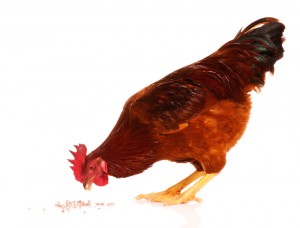A new strain of bird flu has appeared in China. The virus, H7N9, has killed six people in that country and infected 21 so far. McDonald’s in Shanghai has cut the price of its chicken McNuggets in half in the past few days. And China’s airlines are no longer serving chicken to passengers. Consumers there are worried that the outbreak may have infected the city’s poultry market. The virus has evolved to infect people.
 I talked to Dr. O. Peter Snyder about the bird flu and poultry products a few years ago. He said, “the bird flu will have an effect on chicken consumption, and for a while, people will be fearful and eat less chicken. Then, people will realize it doesn’t hurt the ordinary citizen and we will eat as much chicken as ever.” This has been verified by public health officials.
I talked to Dr. O. Peter Snyder about the bird flu and poultry products a few years ago. He said, “the bird flu will have an effect on chicken consumption, and for a while, people will be fearful and eat less chicken. Then, people will realize it doesn’t hurt the ordinary citizen and we will eat as much chicken as ever.” This has been verified by public health officials.
If you cook any chicken you buy to 165 degrees F (check with a food thermometer!), the virus will be killed. Always wash your hands after handling raw chicken and other poultry, and be sure to sanitize any surfaces the raw meat touches. Don’t rinse the chicken before you cook it, since any contaminants can aerosolize under the running water. And be especially careful to avoid cross-contamination: don’t let uncooked foods come into contact with raw meat or its juices.
People who live with the live birds have the highest risk of transmission. And the problem with this virus is that it is more deadly to people than birds, so we can’t tell which birds carry the virus. In Shanghai, officials removed 20,500 birds from a farmers market after the virus was found in pigeons and culled more than 111,000 birds nationwide. There is currently a ban on live poultry trading in that country.
There is still no evidence of person-to-person transmission of the virus, which would be something to worry about. The CDC is working on a vaccine using the virus’ genetic code. We’ll keep you up to date on this issue.




